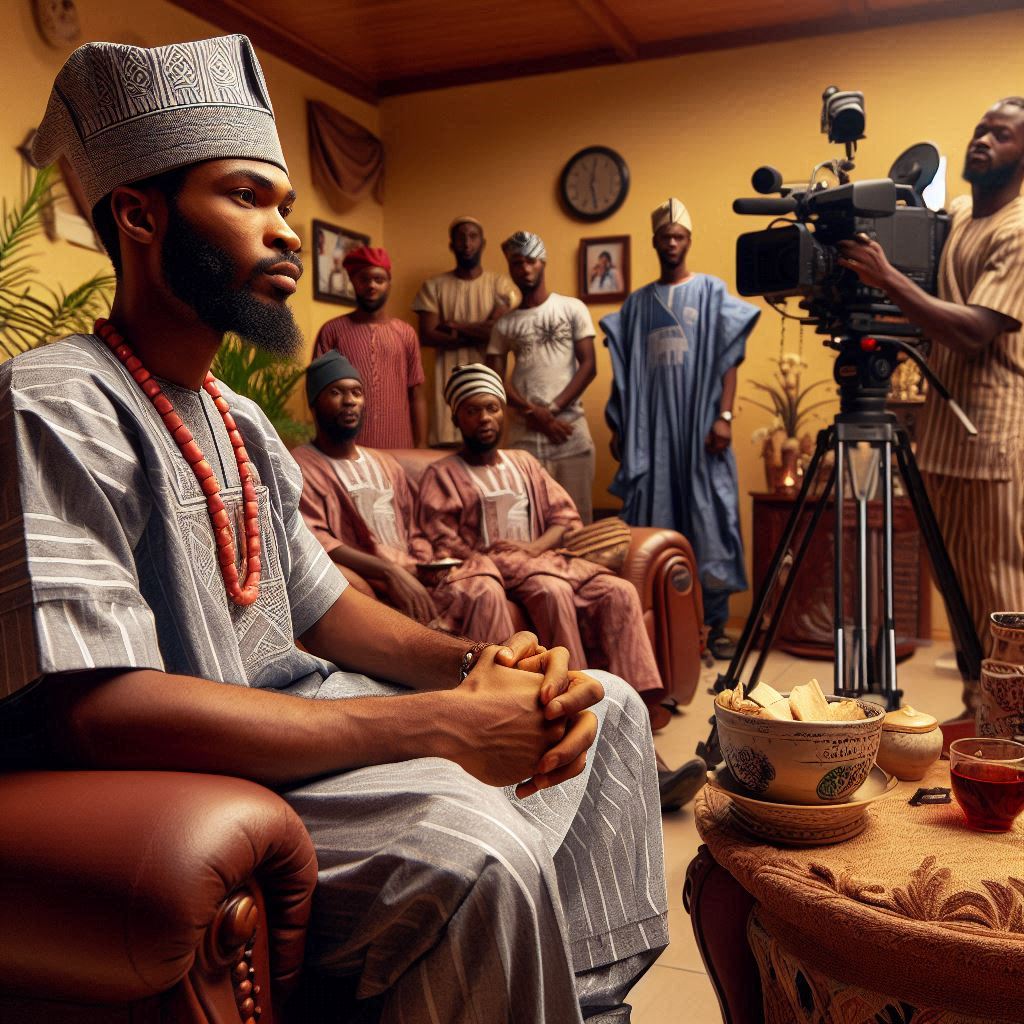Introduction
Comparative Religious Studies is an academic field that analyzes and compares religious beliefs, practices, and institutions.
It seeks to understand different religions through a critical and cross-cultural lens.
This field highlights the diversity and commonalities among world religions, fostering a deeper appreciation and comprehension.
Studying religion in a comparative context is crucial. It promotes mutual respect and understanding among people of different faiths.
It also helps to reduce prejudices and misconceptions. By comparing religions, individuals can better understand their own beliefs and those of others.
This knowledge is vital in our increasingly globalized world.
Nigeria offers a rich landscape for comparative religious studies. The country is home to various religious traditions.
The major religions include Islam, Christianity, and indigenous African religions. Each religion significantly influences Nigerian culture, politics, and society.
Islam is predominant in the northern regions, while Christianity dominates the south.
Indigenous religions are practiced across the country, often blending with Islam and Christianity.
In Nigeria, religious diversity has shaped national identity and social dynamics.
Interfaith interactions are common, creating a unique tapestry of religious coexistence. However, religious differences have also led to conflicts.
These conflicts underscore the importance of comparative religious studies. Understanding different religious perspectives can foster peace and unity.
Nigeria’s religious landscape offers a valuable case study for comparative religious studies. It exemplifies how religions coexist and interact in a pluralistic society.
By studying Nigeria, scholars can gain insights into broader global religious dynamics.
Comparative religious studies in Nigeria can thus contribute to global scholarship.
In essence, comparative religious studies play a vital role in understanding our diverse world.
In the Nigerian context, it offers unique insights into religious coexistence and conflict.
This field fosters mutual respect, reduces prejudice, and promotes global understanding.
The study of Nigeria’s religious landscape is an invaluable contribution to comparative religious studies.
Historical Development of Religious Traditions in Nigeria
When exploring the historical development of religious traditions in Nigeria, it becomes evident that the country is a melting pot of various religions ranging from indigenous beliefs to imported faiths.
The major religions in Nigeria include Christianity, Islam, and traditional African religions.
Major Religions in Nigeria
Christianity arrived in Nigeria through European missionaries during the colonial era.
The missionaries played a significant role in spreading Christianity across the country, especially in the southern region.
Today, Nigeria has a large Christian population, with various denominations present such as Catholicism, Protestantism, and Pentecostalism.
Islam also has a strong presence in Nigeria, especially in the northern region.
The spread of Islam can be traced back to the trans-Saharan trade routes and the influence of Islamic empires such as the Sokoto Caliphate.
Sunni Islam is the dominant sect practiced in Nigeria, with a significant Shia minority.
Traditional African religions, also known as indigenous beliefs, have been practiced in Nigeria for centuries.
These religions vary among ethnic groups and regions, but they share common themes such as ancestor worship, animism, and belief in spirits.
Despite the influence of Christianity and Islam, many Nigerians still incorporate elements of traditional African religions into their spiritual practices.
Influence of Colonization on Religious Beliefs
Colonization had a profound impact on the religious landscape of Nigeria.
The arrival of European colonizers brought Christianity to the country, which led to the conversion of many Nigerians to the new faith.
Missionaries established schools, hospitals, and churches, which served as centers for both religious and social activities.
Islam also experienced growth during the colonial period, as Muslim scholars from North Africa and the Middle East traveled to Nigeria to spread the faith.
The Sokoto Caliphate, established in the early 19th century, played a crucial role in the spread of Islam in northern Nigeria.
The fusion of Islamic teachings with indigenous beliefs created a unique religious syncretism in the region.
Colonization resulted in the suppression of traditional African religions, as European powers viewed them as primitive and pagan.
Many traditional practices were banned, and converts were encouraged to embrace Christianity or Islam.
Despite these efforts, traditional African religions have persisted in Nigeria, demonstrating the resilience of indigenous beliefs.
Transform Your Career with Expert Guidance
Get personalized mentorship consulting that’s tailored to your unique path. Our expert advice is actionable and exclusive.
Get StartedDiversity of Religious Practices in Nigeria
Nigeria is a diverse country with over 250 ethnic groups, each practicing its own unique religious traditions.
This diversity is reflected in the various religious festivals, rituals, and ceremonies held across the country.
Traditional festivals such as the Durbar, Egungun, and New Yam Festival are celebrated by different ethnic groups to honor their cultural and spiritual heritage.
Interfaith dialogue and cooperation are essential in promoting peace and understanding among Nigeria’s religious communities.
Despite occasional tensions between Christians and Muslims, efforts have been made to foster peaceful coexistence and mutual respect.
Organizations such as the Nigerian Inter-Religious Council work to promote dialogue and collaboration between different religious groups.
Overall, the historical development of religious traditions in Nigeria has been shaped by a complex interplay of indigenous beliefs, imported religions, and colonial influences.
The country’s religious landscape is multifaceted, with Christianity, Islam, and traditional African religions coexisting and influencing each other.
Understanding the diversity of religious practices in Nigeria is crucial for promoting tolerance, unity, and harmony among its diverse population.
Read: Challenges in Teaching Religious Studies in Nigeria
Key Concepts in Comparative Religious Studies
Key terms
- Syncretism: Syncretism refers to the blending of different religious beliefs and practices into a new, cohesive system.
- Pluralism: Pluralism recognizes and affirms the diversity of religious beliefs and practices within a society.
- Interfaith Dialogue: Interfaith dialogue involves conversations and interactions between representatives of different religious traditions.
Relevance of Key Concepts to Studying Religion in Nigeria
In the Nigerian context, these key concepts are crucial for understanding the complex religious landscape of the country.
Syncretism in Nigeria can be seen in the fusion of indigenous African religions with Christianity or Islam.
Pluralism is relevant in Nigeria due to the coexistence of various religious traditions such as Christianity, Islam, and traditional African religions.
Interfaith dialogue plays a vital role in promoting mutual understanding and tolerance among different religious communities in Nigeria.
Examples of Concepts Manifesting in the Nigerian Context
Nigerian traditional religions have incorporated elements from Christianity and Islam, showcasing syncretism.
The Nigerian constitution guarantees religious freedom, reflecting the country’s commitment to pluralism.
Various interfaith organizations and initiatives in Nigeria engage in dialogue to foster peaceful coexistence among diverse religious groups.
Read: Cultural Heritage and Religious Practices in Nigeria
Major Religious Traditions in Nigeria
Christianity in Nigeria
Christianity is one of the major religions practiced in Nigeria, with millions of adherents across the country.
- Similarities: Belief in Jesus Christ as the Savior, the Bible as a holy text, and the importance of prayer and worship.
- Differences: Denominational differences such as Catholicism, Protestantism, and Pentecostalism.
- Interaction: Churches play a significant role in providing social services and community development programs.
Islam in Nigeria
Islam is another major religion in Nigeria, particularly in the northern part of the country.
- Similarities: Belief in one God (Allah), the importance of prayer, fasting (during Ramadan), and charitable giving.
- Differences: Sunni and Shiite sects, differences in Islamic jurisprudence, and cultural practices.
- Interaction: Islamic schools, mosques, and organizations contribute to education and social welfare.
Traditional African Religions in Nigeria
Traditional African religions are also practiced in Nigeria, especially in rural areas and among indigenous populations.
- Similarities: Ancestor veneration, belief in deities and spirits, and rituals for healing and protection.
- Differences: Practices vary among ethnic groups, with each community having its unique customs and traditions.
- Interaction: Despite colonization and the spread of monotheistic religions, traditional beliefs still influence cultural practices.
Coexistence and Interaction of Religious Traditions
Nigeria is known for its religious diversity, with Christians, Muslims, and practitioners of traditional African religions living side by side.
- Coexistence: Interfaith dialogue, religious tolerance, and cooperation in times of crisis promote peaceful coexistence.
- Interaction: Religious festivals, ceremonies, and celebrations provide opportunities for cultural exchange and mutual understanding.
- Challenges: Tensions may arise due to differences in beliefs, practices, and socio-political situations, leading to conflicts.
In short, the major religious traditions in Nigeria – Christianity, Islam, and Traditional African religions – each contribute to the country’s rich cultural tapestry.
While there are similarities and differences among these traditions, they coexist and interact in Nigerian society, shaping the country’s identity and fostering diversity.
Read: Religious Studies in Nigerian Secondary Education

Challenges and Opportunities in Comparative Religious Studies in Nigeria
When it comes to Comparative Religious Studies in Nigerian context, there are several challenges and opportunities that need to be addressed.
In a multicultural society like Nigeria, studying religion can be particularly complex due to the diverse religious beliefs and practices present in the country.
Challenges of Studying Religion in a Multicultural Society
- Lack of Understanding: One of the main challenges in studying religion in Nigeria is the lack of understanding and tolerance among different religious groups.
- Religious Bias: Another challenge is the presence of religious bias and prejudice, which can hinder objective study and analysis of religions.
- Conflict and Tension: Nigeria has experienced religious conflicts and tensions in the past, making it difficult to study religion in a peaceful and unbiased manner.
- Misinterpretation: The misinterpretation of religious texts and teachings can also pose a challenge in comparative religious studies in Nigeria.
Role of Education in Promoting Religious Tolerance and Understanding
Education plays a crucial role in promoting religious tolerance and understanding in Nigeria.
By incorporating religious studies into the curriculum, students can learn about different faith traditions and foster mutual respect and acceptance.
- Curriculum Development: Developing a curriculum that includes comparative religious studies can help students gain a better understanding of various religions and promote tolerance.
- Interfaith Dialogue: Encouraging interfaith dialogue and cooperation in educational institutions can also promote understanding and harmony among different religious groups.
- Critical Thinking: Teaching students critical thinking skills can help them analyze and evaluate different religious beliefs and practices objectively.
- Respect for Diversity: Education can instill values of respect for diversity and appreciation for the richness of religious traditions in Nigeria.
Opportunities for Fostering Interfaith Dialogue and Cooperation
- Community Engagement: Engaging communities in dialogue and cooperation can help build bridges between different religious groups in Nigeria.
- Religious Leaders: Religious leaders can play a pivotal role in fostering interfaith dialogue and promoting peace and understanding among their followers.
- Media and Technology: Utilizing media and technology platforms to promote interfaith dialogue and cooperation can reach a wider audience and facilitate communication.
- Government Support: The government can provide support and resources for initiatives that promote interfaith dialogue and cooperation in the country.
In general, addressing the challenges and embracing the opportunities in Comparative Religious Studies in Nigeria can lead to a more harmonious and inclusive society where religious diversity is celebrated and respected.
Read: Scholarships for Religious Studies in Nigeria
Case Studies of Religious Tolerance and Conflict in Nigeria
In Nigeria, a country known for its diverse religious landscape, there are both examples of religious tolerance and instances of conflict
Let’s delve into specific case studies to understand the dynamics at play.
Examples of religious tolerance in Nigeria
The city of Kaduna stands out as a model of religious tolerance, with both Muslims and Christians living harmoniously.
In Plateau state, communities like Barkin Ladi have shown solidarity during religious festivities, fostering unity.
The Peace Corps of Nigeria actively promotes interfaith dialogue, encouraging understanding and tolerance among different religious groups.
Initiatives such as the Interfaith Mediation Centre in Kaduna have successfully mediated conflicts and promoted peacebuilding efforts.
Instances of religious conflict and their underlying causes
The Boko Haram insurgency in the northeastern region has fueled religious conflict, leading to widespread violence and displacement.
In central Nigeria, clashes between farmers and herders have often taken on religious dimensions, exacerbating tensions in the region.
Historical grievances and political manipulation have also played a role in inciting religious conflicts in Nigeria.
Lack of economic opportunities and social inequalities have further exacerbated religious tensions, leading to sporadic outbreaks of violence.
How Comparative Religious Studies can help mitigate religious tensions in Nigeria
By studying different religious traditions, Comparative Religious Studies can promote respect and understanding among diverse groups.
Comparative Religious Studies can highlight commonalities between religions, fostering a sense of shared humanity and interconnectedness.
Through education and dialogue, Comparative Religious Studies can debunk stereotypes and misconceptions that fuel religious intolerance.
By emphasizing the importance of tolerance and mutual respect, Comparative Religious Studies can serve as a bridge for effective conflict resolution.
Overall, the case studies of religious tolerance and conflict in Nigeria underscore the need for proactive measures to promote harmony and understanding among various religious communities.
Comparative Religious Studies can play a pivotal role in fostering dialogue, empathy, and peacebuilding efforts in the Nigerian context.
Conclusion
Comparative Religious Studies hold immense importance in the Nigerian context.
Nigeria, a country rich in cultural and religious diversity, benefits greatly from this field.
Understanding different religions promotes tolerance and peaceful coexistence. It allows individuals to appreciate the beliefs and practices of others.
This understanding fosters mutual respect and reduces religious conflicts.
Continued research in Comparative Religious Studies is crucial for Nigeria. New insights emerge as scholars delve deeper into various religious traditions.
This research helps address contemporary issues in interfaith relations. It also contributes to the development of inclusive policies and practices.
By studying religious diversity, we can create a more harmonious society.
Dialogue on religious diversity must be ongoing. Engaging in conversations about different faiths enhances our collective knowledge.
It breaks down stereotypes and misconceptions about religions. These dialogues can occur in academic settings, community forums, or interfaith organizations.
They provide platforms for people to share their beliefs and experiences.
I encourage readers to explore Comparative Religious Studies further. Delving into this field broadens one’s understanding of the world.
It also enriches personal spiritual journeys. Engaging with diverse religious perspectives can be enlightening and transformative.
Participating in interfaith initiatives is another way to engage with this topic.
These initiatives promote understanding and cooperation among different religious groups.
They create opportunities for collaborative community projects. Such efforts can build bridges and foster unity in Nigerian society.
Comparative Religious Studies are vital for Nigeria’s progress. They encourage tolerance, respect, and peaceful coexistence.
Continued research and dialogue on religious diversity are essential.
By exploring and engaging in this field, we contribute to a more inclusive and harmonious society.
Let us all take part in fostering interfaith understanding and cooperation in Nigeria.




